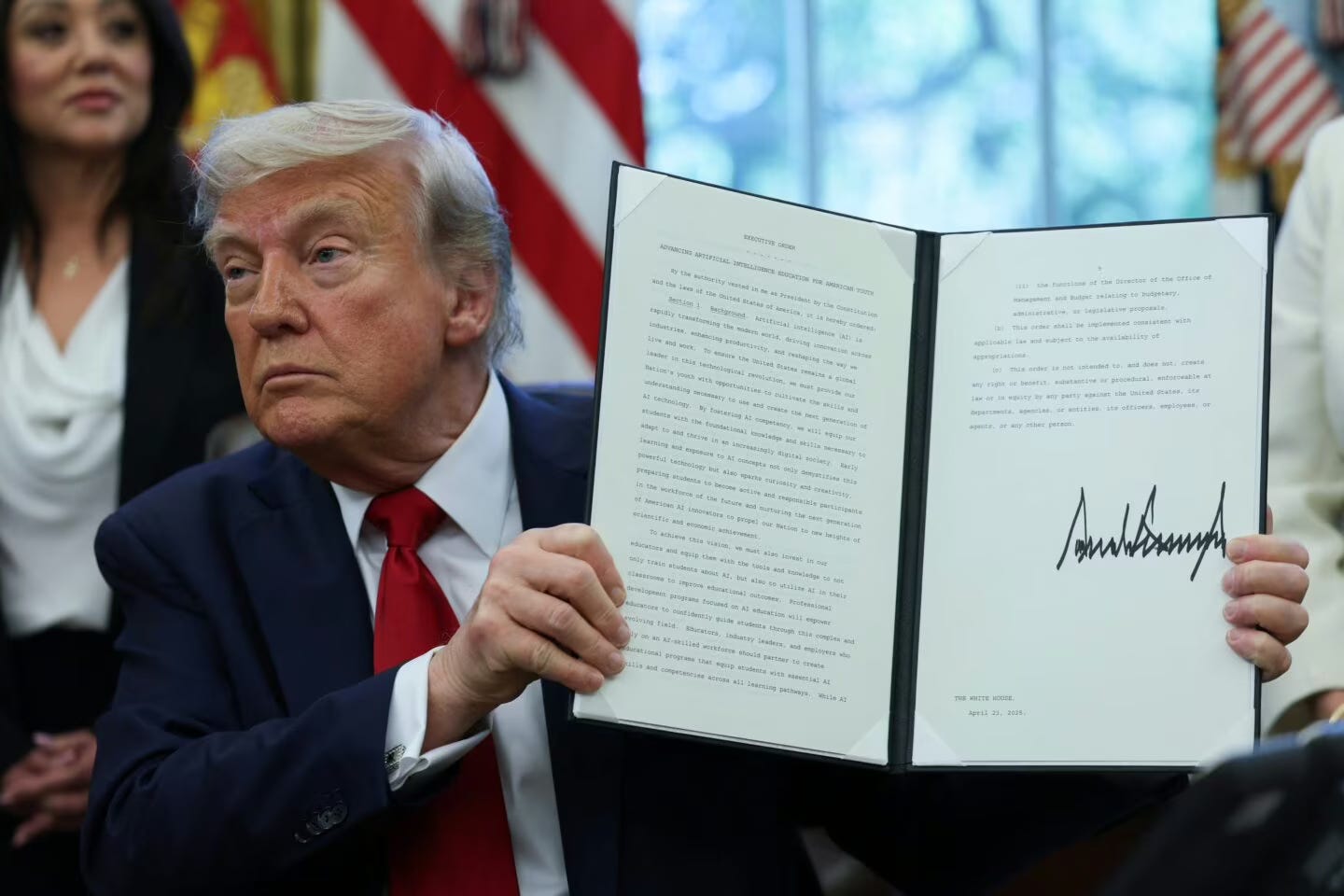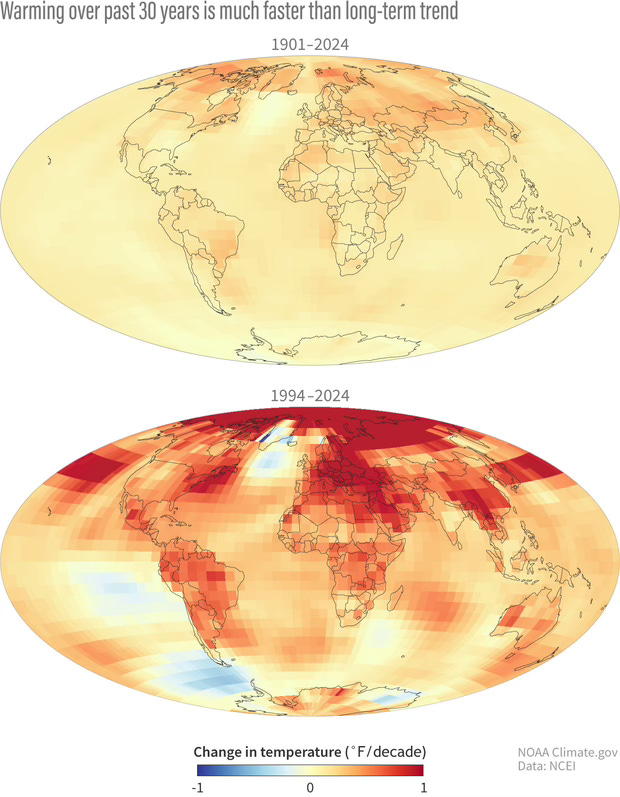The New Four Letter Word: Climate Change
The Trump Administration is Sticking Their Head in the Sand
Every time there's a change in administration, even if it's not a change in party, a rebranding often occurs. When I lived in New York, this was particularly prevalent with "Pride of NY" versus "Taste NY" versus "New York Grown and Certified." While all these projects have purposes I personally align with, they are mostly tactics to promote the purchase of New York-grown goods. While occasionally confusing, this does make sense from a political standpoint. A new elected official wants to get credit for an issue, so they change the marketing to better track it, attract their voter base, and have something to talk about that isn't giving credit to their opponent.
However, this isn't the case with climate change. If you had asked me six months ago what a new administration would have done with climate change, I would have said they would have called it something else but the work would largely continue. I would have expected them to rebrand the issue, knowing that climate change is happening and impacting everything we do, including agriculture. I would have guessed we'd be talking about "abnormal weather events" or "uncharacteristic weather patterns." I never would have guessed that we would be erasing climate change from research, funding, and our vocabulary, effectively halting all forward progress on finding workable solutions.

Why This Matters
Researching climate change is critically important for a number of reasons, but none are quite as important as its impact on our nation’s food supply. Science has helped determine patterns in weather, predict severe storms, and prepare for diminished amounts of natural resources. For example, farmers in Colorado are learning to grow crops with less water through a Master Irrigator course, and in Pennsylvania, sheep are being raised under solar panels, which helps create energy while also shading livestock and cooling the soil from the intense heat of the sun. In both of these situations, the solution was not only found through climate research, but the problem was identified before disaster struck.
When an administration chooses to ignore or suppress climate change, it's not just delaying action; it's incurring a rapidly growing "climate debt." Each year of inaction makes future solutions more expensive, more disruptive, and less effective. The window for avoiding the most catastrophic impacts is closing.
Currently, with reports of censorship in government documents, there will be gaps in data and analysis in future years. This will create blind spots in scientific analysis, potentially setting Americans up for future failures. If drought research is siloed, meaning it's not researched as part of a broader issue like climate change, it's possible that the solutions being developed will only provide short-term relief without addressing the root of the problem.
Beyond agriculture, the consequences of this strategic erasure are far-reaching and touch every aspect of national life:
National Security as a "Threat Multiplier": The Department of Defense and intelligence agencies across administrations have long recognized climate change as a "threat multiplier." This means it exacerbates existing geopolitical tensions, poverty, and resource scarcity, leading to increased potential for conflict, forced migration, and instability. Imagine intensified droughts in already fragile regions, driving mass movements of people and straining humanitarian aid, or rising sea levels threatening critical coastal military bases. When climate change is unacknowledged, military strategists and disaster responders are left with an incomplete picture, unable to adequately prepare for or respond to a growing array of complex challenges. This jeopardizes military readiness and the safety of our service members, both domestically and abroad.
Economic Instability and Lost Opportunities: The economic costs of climate change are not abstract future projections; they are here now. Billions of dollars are lost annually to extreme weather events—hurricanes, wildfires, floods, and heatwaves—that are intensified by a changing climate. These events destroy infrastructure, disrupt supply chains, decrease worker productivity, and strain emergency services. Ignoring climate change is akin to ignoring a chronic, worsening illness in the national economy. Furthermore, by sidelining climate research and solutions, a nation forfeits its competitive edge in the burgeoning global green economy. Innovation in renewable energy, sustainable agriculture, and resilient infrastructure becomes an export opportunity missed, rather than a domestic growth engine.
Erosion of International Leadership and Trust: Climate change is a global challenge demanding global cooperation. When a major nation withdraws from the discourse or actively suppresses climate science, it undermines international efforts to address the crisis. This can lead to diplomatic isolation, decreased trust among allies, and a weakening of multilateral agreements essential for collective action. Other nations, particularly those most directly threatened by rising sea levels or extreme weather, may view such a stance as an abandonment of shared responsibility, impacting broader diplomatic and trade relationships.
Setback for Scientific Advancement and Innovation: Beyond the specific impacts, the deliberate suppression of "climate change" represents a profound attack on scientific integrity itself. It fosters an environment where inconvenient truths are ignored or rebranded, where data can be manipulated or withheld, and where expert knowledge is devalued. This not only cripples our ability to address climate change but sets a dangerous precedent for how society approaches other complex, science-driven challenges, from public health pandemics to technological advancements. It stifles the very spirit of inquiry and problem-solving that has driven human progress.
Ultimately, the decision to remove "climate change" from the American lexicon and policy agenda is not just a political tactic; it's a dangerous act of self-sabotage that undermines scientific progress, societal resilience, and long-term economic stability. It is a choice that will have profound and lasting repercussions, leaving future generations to face the exacerbated consequences of a problem that was once clearly identified and on a path towards workable solutions.





